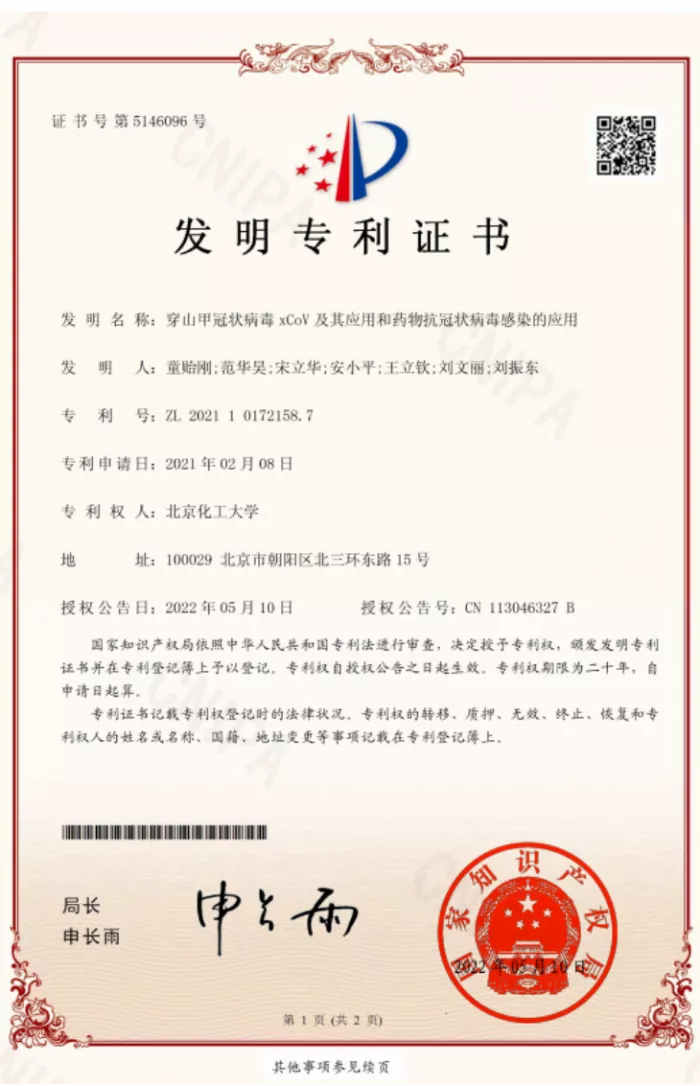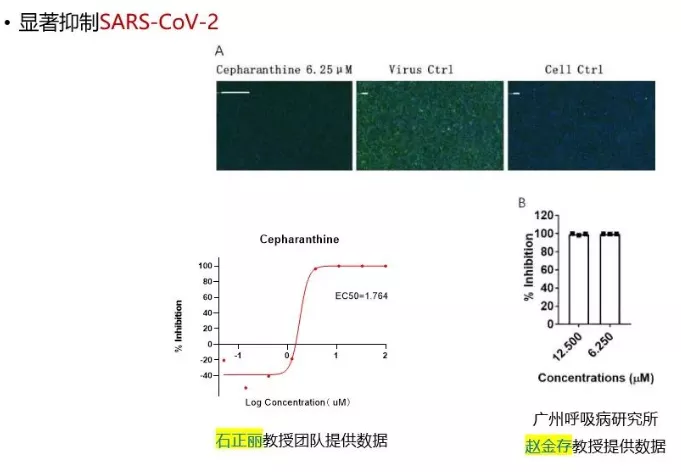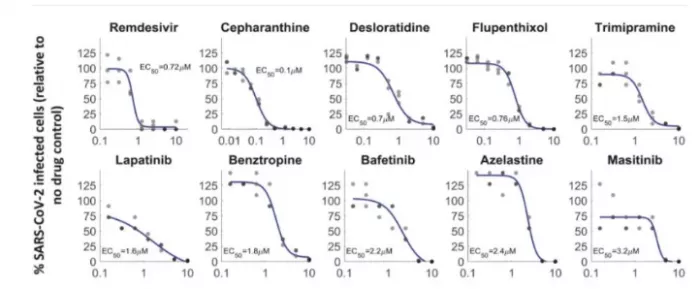On May 10, the new crown treatment drug discovered by Chinese scientists was authorized by the national invention patent. The patent specification shows that 10um (micromol / L) stephanine inhibits coronavirus replication by 15393 times. What does a figure of more than 15000 times represent? On May 12, the reporter of science and technology daily interviewed Professor Tong Yigang, Dean of School of life science and technology of Beijing University of chemical technology.
"Generally speaking, this figure can be understood as that if there are 15393 viruses without stephanine drugs, then 10 viruses are used μ In the case of M stephanine drug, the number of viruses will be only 1. In other words, a small amount of stephanine can prevent the expansion and spread of novel coronavirus. " Tongyigang said that according to the current research data, the drug's ability to inhibit novel coronavirus ranked high among all novel coronavirus inhibitors found in humans. American scholars have also previously published papers in science, confirming that the data of stephanine are bright among the 26 drugs they study, and are better than those of redcivir and palovide, which have been approved for listing.

Drawings provided by the interviewed team
Chinese scholars launched the first round, and multiple international teams tracked and verified it
"With the support of major national projects, stephanine, together with thousands of drugs, has long been included in the compound library of our research group." Tongyigang said, "when novel coronavirus just appeared, our task was to find the most promising drugs among these drugs as soon as possible, that is, the most effective ones to inhibit novel coronavirus."
Since January 2020, Tong Yigang's team has used the unique drug screening platform to screen thousands of drugs.
"Because the screening platform is convenient and does not need special laboratory, negative pressure operation and other equipment, we screen quickly; also because the platform relies on pangolin coronavirus and novel coronavirus with high homology in genome and key protein (s protein), the screening results are more reliable." Tongyigang said that in February, 2020, the team originally found that stephanine had strong anti novel coronavirus activity. The relevant papers published in March of the same year have now become the highly cited papers of ESI.
For more than two years, research teams in various countries have been constantly looking for effective drugs to inhibit novel coronavirus. Scientists discover new clues through papers, academic seminars and other ways, constantly question and verify, and explore the mechanism of action.
In April, 2020, the team of Professor Takashi wabata, director of the National Institute of infectious diseases of Japan, published a paper to confirm the effect of stephanine against novel coronavirus; From October 2020 to August 2021, several research teams published the research progress of stephanine against novel coronavirus in international journals.
At the same time, Tong Yigang further cooperated with Professor zhaojincun and Professor shizhengli, academician Zhongnanshan, to verify the anti novel coronavirus effect of stephanine with novel coronavirus, and confirmed the anti novel coronavirus effect of the drug.

It was found that low concentration of stephanine still had a good inhibitory effect on sars-cov-2, with a concentration of 12.5 μ M and 6.25 μ The inhibition rate of M's stephanine on sars-cov-2 was close to 100%. Drawings provided by the interviewed team
The data stand out and clinical trials need to be carried out urgently
"The high activity data of stephanine against novel coronavirus can stand comparison." Tongyigang said, "both the experimental data of our team and the research data of the U.S. team have conducted comparative studies on the inhibition of novel coronavirus by multiple compounds including stephanine."
According to the patent specification, the three screened effective compounds against novel coronavirus, namely, stephanine, syracin and mefloquine hydrochloride, were tested. 10 μ M's stephanine, silamycin and mefloquine hydrochloride could inhibit virus replication 15393 times, 5053 times and 31 times respectively after 72 hours of cell infection. The experimental results could be repeated.
In July, 2021, an article published in the journal Science confirmed this conclusion: the researcher put stephanine together with 25 other candidate compounds for comparative study. The results showed that the EC50 (concentration causing 50% maximum effect, the lower the number, the better) of stephanine against novel coronavirus was only 0.1 μ M. Much lower than other drug candidates.

Screenshot of the paper.
"We further explained the anti novel coronavirus mechanism of stephanine through transcriptomics." Tong Yigang said that at present, it is believed that stephanine mainly reverses most dysregulated genes and pathways in infected cells by interfering with cell stress response, so as to play an anti coronavirus effect.
At present, a Canadian pharmaceutical enterprise has contacted with the US FDA to carry out a clinical trial study on the treatment of COVID-19 with stephanine. It is expected that the clinical trial will be officially launched in the second half of this year.
"Our country was the first to discover the anti crown effect of stephanine, and the research has also been supported by many projects such as the Ministry of science and technology, Beijing and the Ministry of education. We hope to carry out clinical trial research as soon as possible, so that scientific and technological achievements can be implemented and effectively used in anti epidemic." Tong Yigang said that the patent authorization will help carry out further clinical trial research.